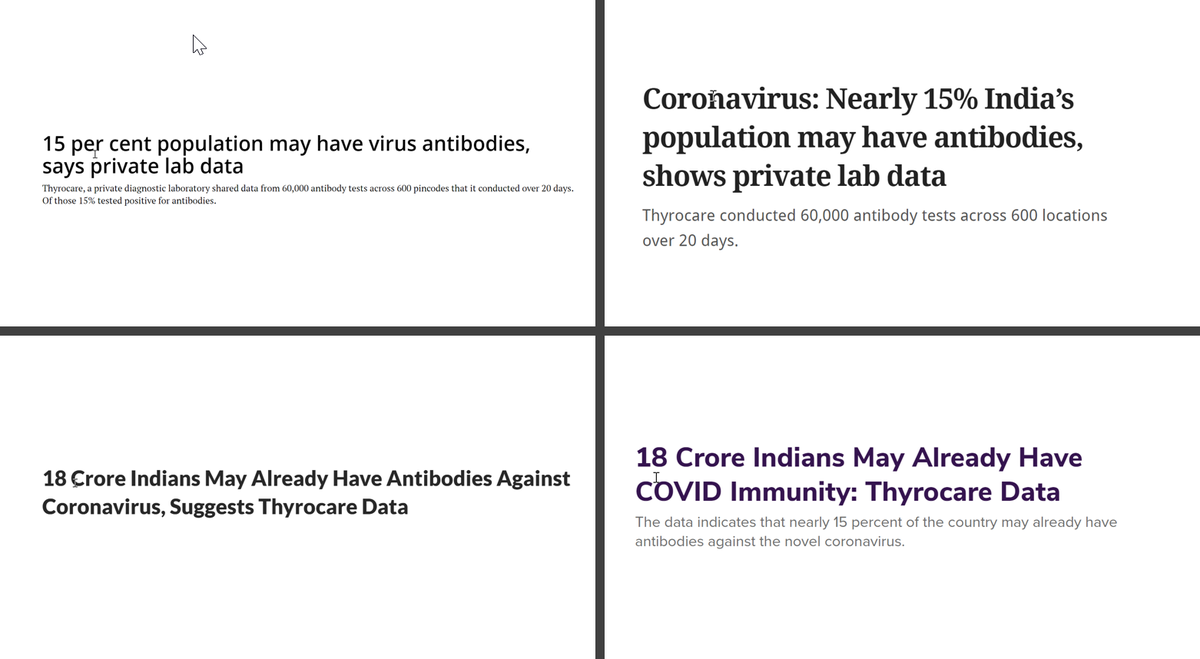In our epidemiology course for journalists, I used this as example of selection bias & uncritical journalistic reporting.
Here are a few headlines in Indian media screaming that 15% of Indians have antibodies against #coronavirus and they have 'immunity'
Here are a few headlines in Indian media screaming that 15% of Indians have antibodies against #coronavirus and they have 'immunity'
First, the data behind this is a Tweet from 1 private lab in India! Not even a pre-print!
Since when does a tweet provide data that can be generalized to an entire country??
Since when does a tweet provide data that can be generalized to an entire country??
Second, data are from a single private lab chain in India. Journalists should be asking the following questions:
-Who gets tested at a private lab in India (affordability)?
-Why did they get tested for antibodies?
-What was the sampling method?
-Who gets tested at a private lab in India (affordability)?
-Why did they get tested for antibodies?
-What was the sampling method?
-If most people tested were corporate referrals, are they affluent people?
-Are those who asked for testing the 'worried well'?
-Are they exposed or having symptoms?
-Does the private lab cover rural populations? Urban poor?
-Are those who asked for testing the 'worried well'?
-Are they exposed or having symptoms?
-Does the private lab cover rural populations? Urban poor?
Based on the above, how representative is the sample to the Indian population at large?
If we plan to generalize to a country, it is a lot of work to get the sampling right. A convenience sample from a single private lab, no matter how large the numbers, will not work.
If we plan to generalize to a country, it is a lot of work to get the sampling right. A convenience sample from a single private lab, no matter how large the numbers, will not work.
And large numbers (60K) cannot overcome selection bias. Large numbers can only provide 'precision' of estimates.
In addition to the selection issues, there is the question of how accurate serological tests are for #Covid_19. Survey results must account for sensitivity & specificity of the test used.
Here is a systematic review on accuracy of serological tests: https://www.bmj.com/content/370/bmj.m2516
Here is a systematic review on accuracy of serological tests: https://www.bmj.com/content/370/bmj.m2516
For a more detailed discussion on selection bias, here is the video from my course on epidemiology for Indian journalists:

 Read on Twitter
Read on Twitter


